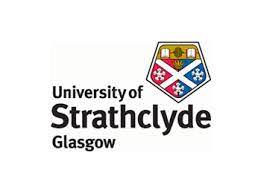University of Strathclyde: Highland Games in heart of Scotland to showcase the future of 5G broadcasting
A Highland Games in the heart of Scotland is at the forefront of a pioneering project trialling future broadcast production in remote locations using 5G and involving world-leading broadcasters.
While this year’s Pitlochry Highland Games in Perthshire are underway on September 10, some of the action will be broadcast live using a local private shared spectrum 5G network to the International Broadcasting Conference (IBC) in Amsterdam – where an estimated 40,000 dedicated technologists and engineers from the worldwide media community will be attending the show.
Live broadcast
The breakthrough project aims to demonstrate just how portable and flexible a private 5G ‘Network in a Box’ can be for live broadcast production use cases, by taking it to some truly remote global locations, as well as to the IBC show itself.
The project is trialling broadcast production over 5G for broadcasters, including BBC Research & Development, BTSport, TV2, Paramount, Olympic Broadcasting Services, RTE and Warner Bros-Discovery.
The private 5G stand-alone network has been designed and engineered and integrated by local technology spin-out, Neutral Wireless Ltd, working alongside the University of Strathclyde’s Software Defined Radio (StrathSDR) engineering team and the Scotland 5G Centre rural testbed project.
The technology will be housed in an unassuming box with antenna, situated in a corner of the balcony at the main event pavilion. As dancers perform to bagpipes and cabers fly through the air, the games will be provided with a dedicated bandwidth using shared spectrum, with no interference or capacity issues affecting the quality of transmission – even in big crowds where many consumers and visitors are using their mobile phones and the local WiFi.
Private networks
Professor Bob Stewart, from the University of Strathclyde and Director of StrathSDR, said:
This trial will show how truly portable our 5G private standalone network is and how we can ‘popup’ private networks using shared spectrum and connect cameras, microphones, monitors and other user devices or handsets.”
Paul Coffey, CEO of The Scotland 5G Centre added: “It is great to see that 5G capability can communicate the celebration of Scottish identity at the Pitlochry Highland Games to our broadcast colleagues in Amsterdam.
“This is a significant use case from our partners at the University of Strathclyde as it demonstrates the portability of a private 5G standalone ‘network-in-a-box’ and opens up numerous possibilities for future use of 5G technology in live broadcasts.”
Remote production
Mark Smith, Head of the IBC Accelerator Media Innovation Programme, said: “Pitlochry will help us show that 5G remote production can happen anywhere. We are trialling in four remote areas of the world, in Ireland, in Kenya, New Zealand, as well as Pitlochry, which provides the perfect opportunity to focus on a private 5G network.”
Dr Cameron Speirs, CEO of Neutral Wireless Ltd, said: “It’s exciting to provide the fully portable 5G Non-Public Network-In-a-Box (NIB) as the local communications backbone at the Pitlochry Highland Games.
“The 5G NIB utilises part of the UK’s Shared Spectrum band and is configured to support the high uplink data rates required for successful media content production. This ground-breaking technology could ultimately transform rural broadcasting and remove the need for giant satellite trucks and miles of cabling.”

